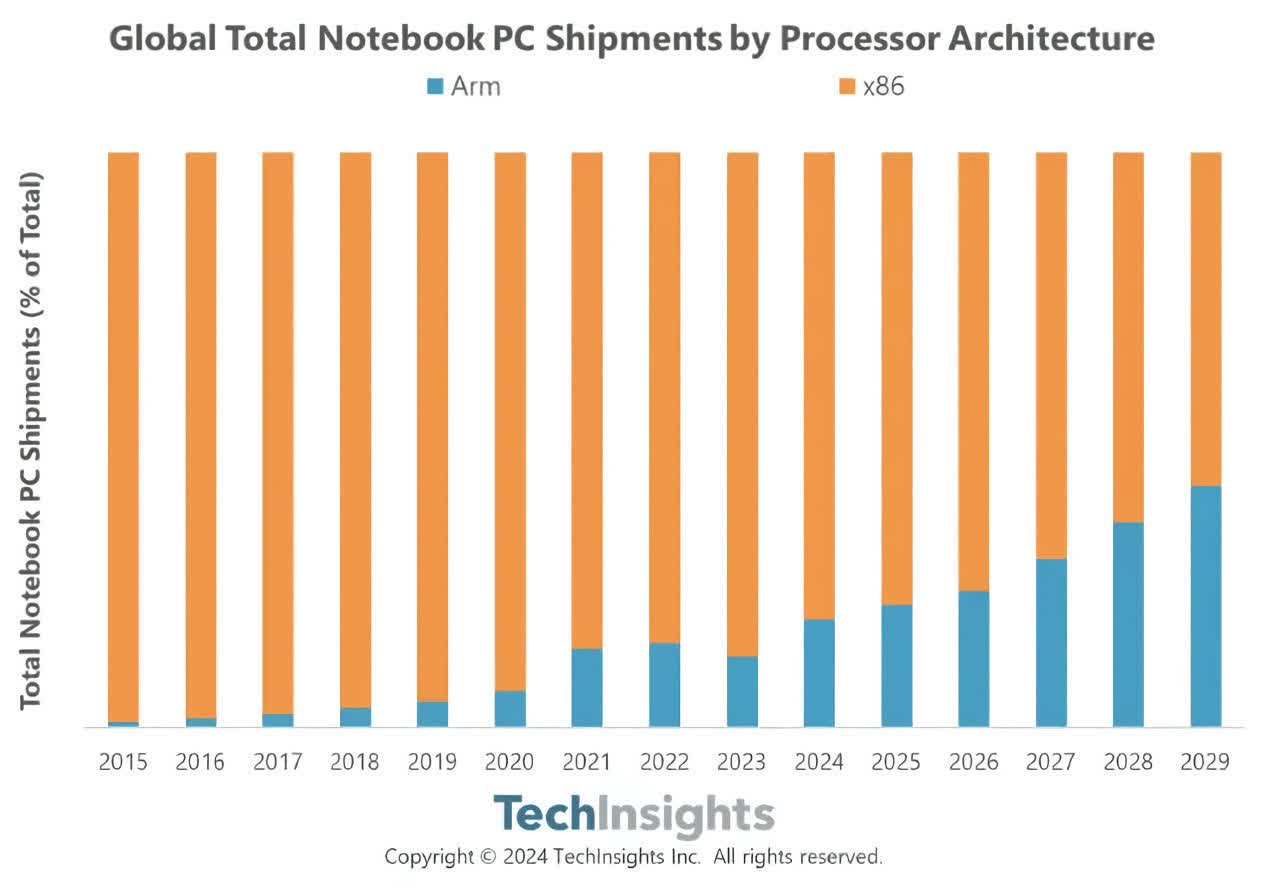Forward-looking: A market research firm has projected that by 2029, 40 percent of all notebooks sold globally will use Arm-based CPUs. If the prediction turns out to be accurate, it will be quite a change from the current scenario, where x86 processors from Intel and AMD dominate the market.

Semiconductor-focused analysis firm TechInsights says x86 currently accounts for 82 percent of the notebook processor market, while Arm's market share is around 18 percent. It expects Arm's footprint to grow to 20 percent by 2025 in the notebook market as more affordable Qualcomm Snapdragon-powered AI PCs hit the consumers.
By 2029, the x86-Arm split could be around 60-40, with Arm's revenue share reaching 52 percent, thanks to more premium products from companies like Apple and Microsoft. Apple is currently the only major OEM to exclusively use Arm chips in its notebooks, having switched from Intel's x86 offerings to its in-house Apple Silicon in 2020.
Several major PC vendors recently released Arm-powered Copilot+ AI PCs that Microsoft believes will rejuvenate and reshape the Windows notebook market. Microsoft, Dell, Lenovo, Asus, Acer, and Samsung are some of the major laptop makers that launched new arm-powered notebooks earlier this year, with more affordable models slated to flood the market in 2025.

In addition to Apple and Qualcomm, other chipmakers are also working on upcoming Arm-based notebook processors. Huawei expects to debut its Kirin PC chip early next year, while Nvidia and MediaTek are also prepping laptop processors that could debut in 2025.
TechInsight's report comes a few months after Arm CEO Rene Haas claimed that the company's market share in PCs "could be better than 50 percent," a claim that some industry insiders have disputed. However, Haas and other Arm proponents believe the goal is achievable if Microsoft, Qualcomm, and MediaTek sort out the outstanding emulation issues.
One significant benefit of Arm over x86 is energy efficiency. Snapdragon X processors are substantially less power-hungry than the x86 offerings from Intel and AMD. However, Intel narrowed down that advantage considerably with the launch of its new Lunar Lake processors, which are much more efficient than their predecessors.
Analysts predict Arm CPUs will power 40% of notebooks by 2029